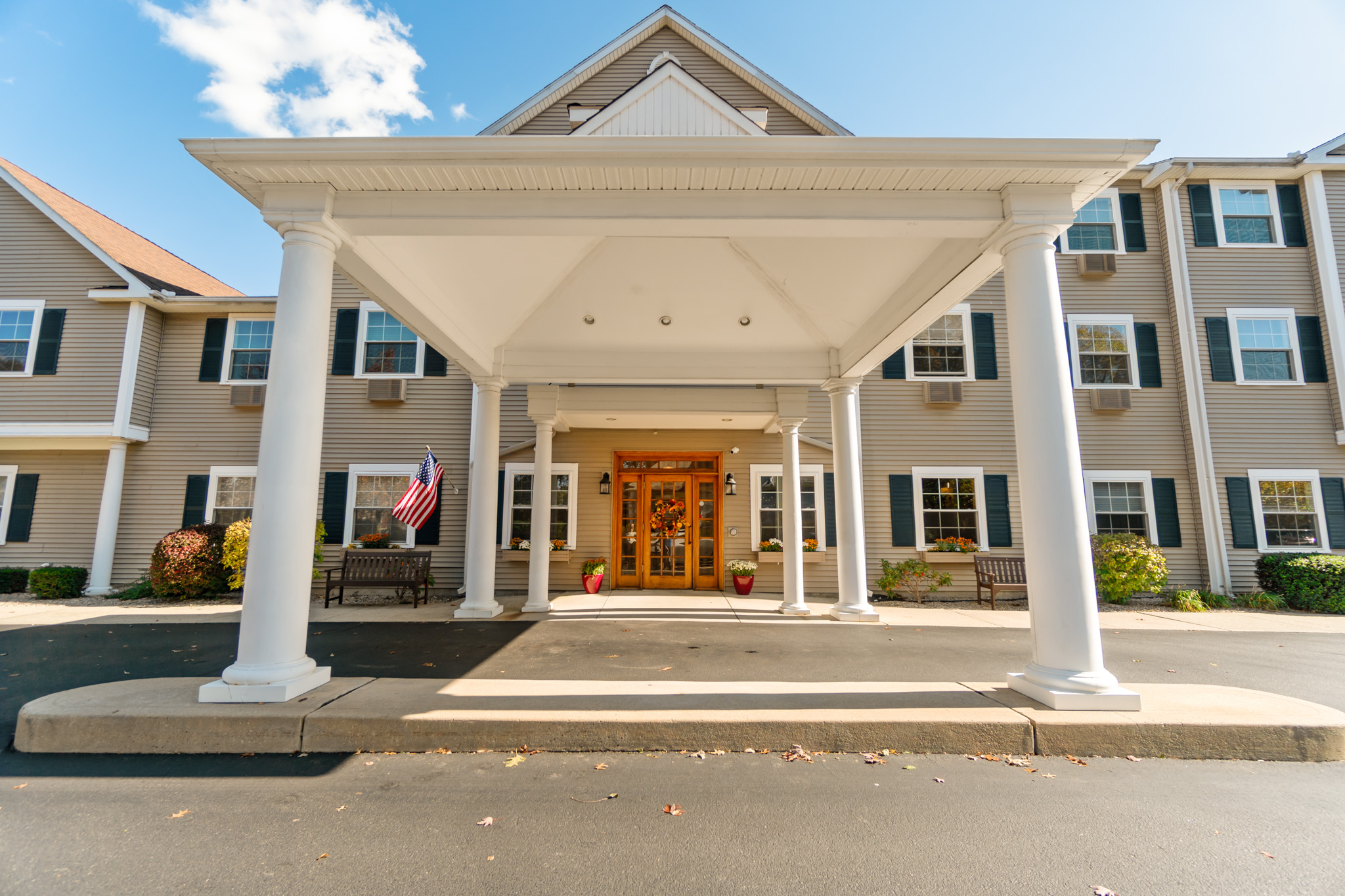Lifelong Learning and Cognitive Care for Seniors
Posted By HarborChase on May 1, 2024As family members grow older, it is crucial for them to exercise their minds as much as their bodies. Education is a fundamental process of life that does not stop when we’re at retirement age. As there are many different learning styles, there are many ways to continue acquiring new knowledge. Lifelong learning is the pursuit of wisdom through continuing education. Older adults may seek education classes online, through local colleges, or in public communal spaces like the library. On one’s own, they can also practice cognitive care exercises to keep themselves mentally active.
Lifelong learning opportunities are growing in popularity. With the increase of new students enrolling in college within the 65+ age range, colleges have opened up the opportunity for senior citizen scholarships and discounted learning programs for continuing education. For example, Alabama provides a scholarship program that allows state residents aged 60 or older to receive free tuition at participating two-year public colleges. This initiative is part of a broader movement across the country to make education more accessible to seniors, recognizing the value it brings to individuals and communities as a whole.
Seniors have seen the benefits of education for the older mind. The National Institutes of Health discovered that learning new and complex concepts is healthy for the brain and can increase memory care for those at risk of dementia.
Contact your community council or local library to discover new and exciting opportunities. Additionally, explore online resources or inquire at nearby educational institutions, including community colleges and more prominent universities, for further information.
Everyday cognitive care practices are also essential, and many different options are available. Studies show that the best way to exercise the mind is to partake in activities that engage all the various parts of the brain at once. Our team at HarborChase Senior Living is sharing some excellent examples.
Physical Activity
Good news: if you’re exercising regularly, you’re also helping your mind. Exercise has proven to activate certain hormones during regular physical activity to help improve memory function. Aerobic fitness is one of the best of these activities. Just by going for a brisk walk or light jog, you’re taking care of your mind.
Beyond enhancing memory function, physical activity for seniors encompasses many additional benefits that contribute to overall well-being. Regular physical engagement, especially in aerobic exercises, has been found to significantly reduce the risk of chronic diseases such as heart disease, diabetes, and osteoporosis.
Let’s not minimize the role it plays in managing weight, improving sleep quality, and reducing the terrifying symptoms of anxiety and depression. For seniors, these positive outcomes mean not just living longer but also enjoying a higher quality of life, with more energy and a better mood on a day-to-day basis.
Exercise by Gardening
Gardening stands out as a therapeutic activity that does wonders for cognitive function in seniors, blending physical effort with sensory engagement and a rewarding sense of accomplishment. The process of planning, planting, and nurturing a garden demands attention, problem-solving, and continuous learning, which stimulates key aspects of the brain responsible for memory and processing.
Furthermore, a garden’s serene, nature-centric environment can help reduce high stress levels, which, of course, helps maintain positive mental health. This multifaceted engagement thus contributes to better cognitive functioning over time, enhancing mental acuity and emotional well-being, especially in senior living communities.
Get Your Groove On
Dance, on the other hand, epitomizes a fun and immersive exercise method that greatly benefits cognitive function in older adults. It combines physical activity with music, laughter, and social interaction, providing a fun, stimulating experience that engages multiple brain functions simultaneously.
Learning and remembering dance steps improves memory and concentration, while the coordination required to execute movements enhances neural connections in the brain. Additionally, the social aspect of dancing reduces feelings of loneliness and depression, further promoting cognitive health. Dance classes designed for seniors offer a joyful and inclusive space where they can stay active, meet new people, and delightfully challenge their brains.
Creative Endeavors
Though often studied in children and young adults, participating in creative activities also promotes innovation and motivation in older adults. These activities may include art, music, writing, or other crafts. If you have a hobby you enjoyed in your younger years or a musical instrument that you played, picking it back up is a great way to flex those brain waves and keep your cognitive function pumping. Neuroscientists have found that music training can change how the brain reads sensory information.
Penning Down Memories
The act of writing, whether journaling, storytelling, or engaging in creative writing projects, offers numerous cognitive benefits for older adults. This activity enhances memory, improves communication skills, and provides a creative and healthy outlet for emotions and stress. By organizing thoughts and focusing on language structure, older individuals can stimulate their brains in a way that aids in maintaining cognitive function.
Additionally, writing encourages a sense of achievement. It can be a source of personal expression and legacy, allowing seniors to document their life experiences or create fictional worlds from their imagination.
Brushstrokes of Brilliance
Art, in its various mediums, serves as a powerful stimulant for cognitive functions in older adults. Engaging in painting, drawing, or sculpting activates different areas of the brain simultaneously, including those responsible for motor skills, creativity, and problem-solving. This multifaceted stimulation can help to slow cognitive decline and even improve certain aspects of mental agility.
Furthermore, art provides a sense of accomplishment and can be a significant way for individuals to express their emotions and reflect on their rich lives, enhancing emotional well-being and reducing symptoms linked to depression and anxiety.
Crafty Cognitive Care
Crafting is another engaging activity that can substantially benefit seniors’ cognitive health. Activities such as knitting, woodworking, or quilting require focus, hand-eye coordination, fine motor skills, and the ability to follow complex patterns or instructions. These factors work together to keep the mind active and agile, potentially delaying the onset of cognitive impairments.
Crafting also offers a sense of community and belonging, as many of these activities can be done in groups, fostering social connections and further contributing to mental health. The satisfaction of creating something from nothing with one’s own hands can boost self-esteem and provide a tangible sense of accomplishment.
Mindful Meditation
Meditation and mindfulness practices have long been celebrated for their profound impact on mental and physical health. With evidence dating back to the 1970s, studies have showcased the heightened cognitive function in monks who regularly engaged in these practices.
A more recent study that further explores the impact of meditation on cognitive disorders delves into the positive effects that regular meditation has on specific brain areas associated with cognitive functions in individuals diagnosed with mild cognitive impairment (MCI) or early stages of Alzheimer’s disease (AD). The research highlights that even meditation-naïve persons with MCI or mild AD can experience significant benefits from engaging in long-term meditation practices. These findings underscore the potential of meditation as a non-invasive and accessible intervention to support cognitive health and slow the progression of cognitive decline in older adults.
This research underscores the potential of meditation not only as a tool for enhancing the well-being of older adults but also as a promising therapeutic intervention for those living with cognitive impairments. The therapeutic essence of meditation, characterized by its simplicity and accessibility, makes it a valuable addition to the wellness regimen of seniors, offering a beacon of hope for improving the quality of life across all ages.
How Mindfulness Illuminates a Path to Vibrant Aging
The practice of mindfulness and meditation transcends mere cognitive benefits; it embodies a holistic approach to aging gracefully. Engaging in mindfulness activities, such as guided meditations, yoga, and simple breathing exercises, has yielded a myriad of health benefits for seniors. These include reduced anxiety, improved memory, enhanced focus, and uplifted mood. The underlying principle of mindfulness — the art of being present and fully engaged with the moment — empowers individuals to cultivate a deeper awareness of their mental and physical states, fostering an environment conducive to cognitive and emotional well-being.
By integrating mindfulness practices into their daily routine, older adults can navigate the challenges of aging with resilience, maintain their cognitive health, and embrace a more fulfilled and balanced lifestyle.
Building Mindful Communities
Furthermore, communities increasingly recognize the importance of providing accessible mindfulness resources and meditation classes tailored specifically for seniors. These initiatives aim to equip older adults with the tools and knowledge needed to embark on their mindfulness journey, encouraging them to take proactive steps toward enhancing their cognitive health and overall well-being.
As research continues to illuminate the cognitive benefits of meditation and mindfulness for seniors, it is incumbent upon society to foster environments that support integrating these practices into the fabric of senior care, ensuring that every individual can experience the transformative power of mindful living.
—
Learning is essential for all ages. The brain is like a muscle, and like all muscles in the body, the best way to keep it at peak performance is to exercise it daily. At HarborChase Senior Living, we provide exceptional memory care services and exciting activities to get you and your brain up and moving.
To learn more about what our luxury communities have to offer, visit our website or contact one of our associates today!
Updated: May 2024
Categories: Health Habits


